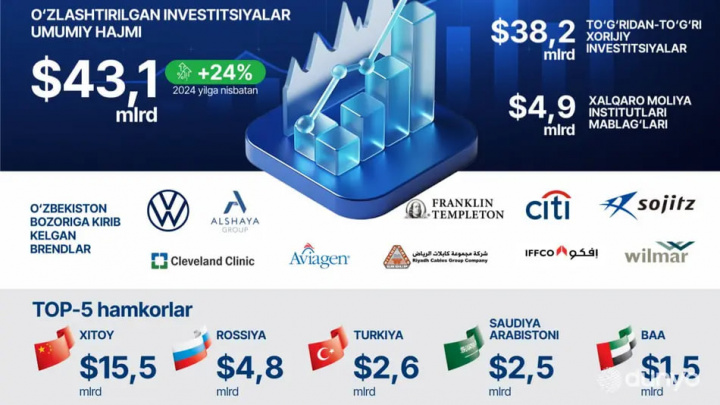Uzbekistan to join BRICS as partner state in 2025: What’s at stake?
Uzbekistan is set to become a partner state of BRICS, a coalition of emerging economies, starting January 2025. The announcement was made not by Uzbekistan’s government but by Yuri Ushakov, an aide to the Russian president, raising questions about the country’s strategic alignment and implications for its international relations.

BRICS, originally formed in 2006, comprises nations aiming to promote a multipolar world order and challenge Western economic dominance, particularly that of the United States. The group is expanding, with six new member states joining in 2024, and an additional 13 nations, including Uzbekistan and Kazakhstan, set to partner with BRICS in 2025.
Strategic implications of BRICS partnership
Uzbekistan’s partnership with BRICS has sparked debate among experts and policymakers. While the partnership provides a platform for global dialogue, it also aligns Uzbekistan with an organization perceived as opposing U.S. influence and the dominance of the dollar. This move raises concerns about how it will affect Uzbekistan’s long-standing strategic partnership with the United States.
Farhod Tolipov, a political analyst, emphasized the delicate nature of this alignment. “Uzbekistan’s cooperation with BRICS could tarnish its foreign policy, particularly its strategic ties with Washington, as BRICS is often seen as an anti-Western alliance,” Tolipov noted.
Balancing BRICS and WTO membership
Uzbekistan is simultaneously pursuing membership in the World Trade Organization (WTO), which has the backing of key Western economies. Analysts warn that deepening ties with BRICS could delay Uzbekistan’s WTO accession. The WTO offers immense economic opportunities, with 166 member states supporting Uzbekistan’s trade and economic growth. However, experts caution that BRICS involvement might complicate negotiations with Western powers.
Valijon Toraqulov, an expert in international trade, highlighted the potential economic opportunities in BRICS but noted risks to WTO membership. “BRICS has transformed from an economic bloc to a geopolitical one. Aligning too closely with BRICS may lead Western countries to perceive Uzbekistan as leaning toward Russia, delaying its WTO membership,” he explained.
Economic and geopolitical dimensions
BRICS is increasingly seen as a platform for countries seeking to reduce reliance on Western-dominated financial systems. Yet, many BRICS members, including India and potential entrants like Saudi Arabia and Argentina, maintain strong ties with the United States.
Tamilla Qurbanova, a finance expert, underscored the dual-edged nature of BRICS involvement. “While BRICS offers a global dialogue platform, Uzbekistan must tread carefully to maintain balanced diplomacy. Closer ties to BRICS could risk appearing overly aligned with Russia, which might not serve Uzbekistan’s long-term interests,” she said.
Related News

15:02 / 10.01.2026
Tashkent residents report highest inflation as nationwide perception hits 12 percent

12:45 / 09.01.2026
“Public debt remains manageable despite rise in external borrowing” – MIIT

14:51 / 07.01.2026
Foreign investment in Uzbekistan tops $43 billion in 2025

14:18 / 07.01.2026



